#The Prime Directive
Explore tagged Tumblr posts
Text
It's genuinely kind of fascinating to me that the Prime Directive was, as far as I recall, never once mentioned or alluded to for over 20 episodes of TOS and is rarely that big of a deal. Sure, the world-building developed gradually over time and it takes a bit to find their footing, but you really wouldn't guess from TNG and general Star Trek discourse that the Prime Directive is so completely irrelevant for so long.
But also, the very episode in which it's introduced—"Return of the Archons"—parallels the Prime Directive of Starfleet with the Prime Directive of the evil computer in the episode. The familiar Prime Directive is only mentioned once in vague terms; Spock brings it up as a concern and Kirk immediately rule-lawyers his way out of obeying it. Meanwhile, Landru the evil computer (named after an actual, long-dead guy who programmed it) says:
Your statement is irrelevant. You will be obliterated. The good of the Body is the Prime Directive.
Landru has basically instituted a terrifying control state in which people are kept submissive, docile, harmonious, and physically healthy, interpreting this as "the good of the Body" (the body being the physical welfare of the people). It's able to override the wills of those subsumed into "the Body," including Sulu and McCoy.
Kirk, aided by Spock, beats Landru by focusing the analysis on "the good" and thus redefining the Prime Directive (of Landru) as creating the good for the people and destroying the evil. He then convinces Landru that Landru's oppressive rule itself qualifies as "the evil" and thus it must destroy itself under the Prime Directive.
KIRK: You are the evil. The evil must be destroyed. Fulfill the Prime Directive. You— LANDRU: Landru, help me! KIRK: —are the evil. Fulfill the Prime Directive.
So, the very episode that introduces the Prime Directive as a concept:
Is over 20 episodes into the series;
Barely mentions the Starfleet version, and the Starfleet characters easily come up with a justification for ignoring theirs in favor of helping people;
Provides an obvious dramatic foil in the evil AI counterpart version, also called the Prime Directive, and what often is the thing being referring to by the term in that episode;
Has Kirk et al free people by redefining the evil Prime Directive as requiring the promotion of the common good but for real, and destroying the true evil of oppression, resulting in the liberation of the people Landru was dominating.
The takeaway about Starfleet's Prime Directive in the context of all this is ambiguous at best. So the Prime Directive becoming this very concrete, pivotal, absolutist aspect of the world-building is not really how it's introduced. And I do feel like TOS most often treats "fight oppressive evildoers and help people" as a far higher priority than non-interference, though Kirk et al do prefer to accommodate regulations and orders when they can.
It reminds me a little of Asimov's Three Laws of Robotics, which were an intriguing concept to begin with and became this whole ... thing over time.
#anghraine babbles#star trek: the original series#star peace#landru#james t kirk#anghraine's meta#long post#the prime directive#st fanwank
36 notes
·
View notes
Text
“…we are in such violation of the Prime Directive as not even the Enterprise has managed before.”- Spock
Fuckin around and finding out, the novelization.
30 notes
·
View notes
Note
The Prime Directive IS important though. You can't have the Federation without it. Playing God with primitive cultures can only end badly.
Yeah, that's the conventional reasoning that every iteration of Star Trek seems to use, but it doesn't work for me. Never has. Whenever characters defend The Prime Directive, (especially in The Orville, 3X10) All I can think to myself is - that's an awful lot of words to say "I won't help those in need." Like, they can dress it up in poetry all they want, but at the end of the day, that's what they're saying, and I can't get on board with it.
Yes, things can go wrong when you help people. They can make the wrong choices with the opportunities you've given them. But that's just life, and that's on them. It's not always going to happen, and it's not a justification to stop helping people. It's honestly so odd that this is The Federation's policy, because...it's pretty much the same logic people use when they refuse to give money to the homeless because "they might spend it on drugs." Like, not to get political, but Star Trek (and The Orville) are generally pretty liberal and the Prime Directive is...not. They claim they can't provide aid to more primitive cultures, but refusing to do so for no other reason than a baseless prediction of how it might go wrong is just...selfish.
They make a point of showing us the "consequences" of interfering in various episodes, but it never changes my mind. Episode 1X12 of The Orville deals with this by having a religion form around the First Officer after she uses advanced tech to heal an injured child. But this was a stone age civilization and a religion was bound to form anyway - the descendants of these people even tell the crew that if it hadn't been the First Officer, it would have been somebody else. People are gonna do what they do. You can't control them. You can only control you own decisions and whether or not you choose to help those in need. And how dare The Federation claim moral superiority over everyone when it's strictest law is this selfish?
Maybe this is because I'm a Whovian. Maybe it's because I watched Doctor Who first. Because for those of you out there who are in both fandoms, you ever notice how The Doctor's values are in direct conflict with those of The Federation? I think back to Eleven telling Clara with his whole chest, "We don't walk away. And yes, it's a fundamental part of the character, the Time Lord who ran away from Gallifrey and defies their policy of "non-interference" at every turn.
(Actually, this is unrelated, but I've always wondered why Star Trek and Star Wars have such a fandom rivalry. Because apart form being the same genre and having similar names, the stories have nothing in common. Star Trek and Doctor Who, on the other hand, have very similar formulas with conflicting values. )
#Star Trek#Star Trek Next Gen#The Orville#The Prime Directive#The Federation#Kelly Grayson#Doctor Who
10 notes
·
View notes
Text
Hot take re the "prime directive"
As a trans person if you see someone in your personal life who you are friends with who you think is trans, you do have somewhat of an obligation to talk to them and tell them that you think they might be trans.
But harassing an online creator by calling them an egg repeatedly is not that and is not helpful.
1 note
·
View note
Text
Hey I just want to complain about the prime directive.
The federation really just said "erm, we understand that you would desperately want to know alien life exists, and that doing so would only be beneficial, but you haven't met an arbitrary technological milestone, sorry :/"
Like, I get it's to "protect their culture" and shit, but culture changes. That's what it does. You don't have the right to withhold information from someone because they might stop doing an interesting dance before they build a pot. These are people not interesting social science subjects.
#complaining#Star Trek#the prime directive#is really fucked up#just straight up a cultural superiority complex wrapped in flawed ethics#like imagine how pissed everyone would be if it turned aliens had been prime directiving us
2 notes
·
View notes
Text
American Imperialism in Star Trek: The Prime Directive and Cultural Imperialism
Another important layer to Star Trek’s depiction of American imperialism is the presence of a guiding fictional principle known as the “Prime Directive.” This directive states that no humans or other Federation members may make contact with other planets deemed “less developed” than the Federation. This directive exists because of a fear that contact with “primitive” aliens would immediately and irrevocably alter the course of that world’s development. Going back to my first post, this is more evidence of how frontier mythology has affected Star Trek; there is a “tradition” within American stories of exploration where any indigenous people are depicted as ‘primitive’ and innocent in contrast to the fictional counterpart for the United States (Newell and Lamont 61). Thus, Star Trek’s Prime Directive carries the idea of the Federation’s own superiority, since a belief that they can “civilize” or “advance” a culture upon contact suggests the view of that culture as inferior and uncivilized – and empire, after all, depends on a belief in the imperial power’s own superiority (Howe 83).

[A meme about the Prime Directive, which is often joked about by Star Trek fans. Image from The Eclectic.]
The idea of cultural imperialism is essentially one of cultural dominance stemming from the imperial power’s belief in the supremacy of its own values. In the modern day, cultural imperialism also involves dominance of the media – and is a type of imperialism that the U.S. has mastered. Today, American empire does not manifest in colonies and conquest, but rather in the scale of its cultural influence and the power it holds on the global stage in trade and wealth (Howe 57). Ultimately, the way the Federation’s idea of cultural superiority is so strong that it’s tied into everything that they do reflects how the United States’ own cultural superiority is so often reflected in American produced media. This is why it’s important to be aware of how American fiction can perpetuate and justify American colonial activity – whether that fiction is a space western or not.
Project Bibliography
0 notes
Text
I never got how past TOS every Star Trek writer seems to treat the Prime Directive as some sort of sacred edict rather than the anti imperialist screed it actually is. TOS was made in the Cold War where Russia, the USA, and other countries were basically playing tug of war with smaller countries to their detriment, so writer Gene L. Coon came up with the idea that Starfleet should not do that, that civilizations should be allowed to develop on their own without being used as catspaws by more powerful entities.
The problem is that somewhere along the line this got lost and it turned into “these people are all going to die but saving them would violate the Prime Directive”. Like yeah you should save people from dying, just don’t do it in a way that makes them your client state!
6K notes
·
View notes
Text

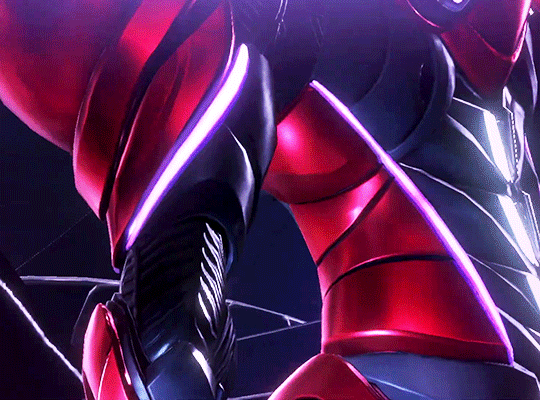
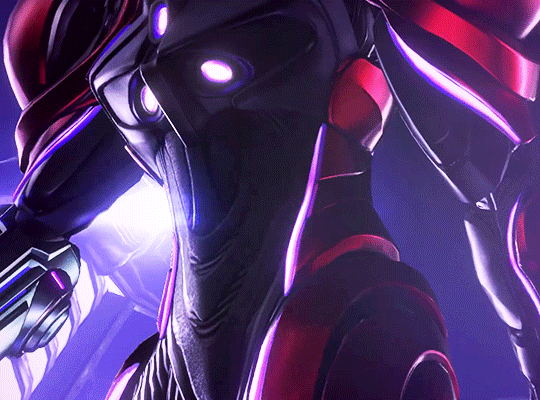
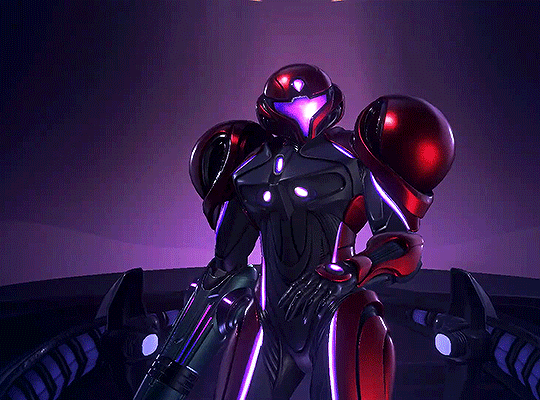
Samus Aran in METROID PRIME 4: BEYOND (2025)
#metroid#gamingedit#metroidedit#dailygaming#metroid prime#metroid prime 4#metroid prime 4 beyond#metroid prime 4: beyond#nintendo#nintendo direct#samus#samus aran#mistress-light#mikaeled#apocalypsekid#usermaro#userfreddie#thelvadams.gifs#light suit but red? hey i'll take it
4K notes
·
View notes
Text
Please go on, I want to know more about this for fic reasons!
Every day I think about how the Prime Directive is based on inherently racist and now outdated ideas of unilineal sociocultural evolution and this is only addressed less than a handful of times in the show
#Star Trek#The Prime Directive#I would really like clarification on this because I thought the PD was about respecting developing cultures' rights to remain as they are..
140 notes
·
View notes
Text
capitalism/growth ideology is bad, neoliberalism is bad, austerity is bad, automation is bad, AI is bad, and the future is bad
this is bleak
the luddites were, in general, right
and so were all the people who would have chosen to live simply and peacefully in the distant past
how do we stop this from going any futher
it already went too far a long time ago
Yes fine i know that technology has enabled scientists and psychologists and anthropologists and doctors and dieticians to study human functioning and needs faster/more,
but but...... to have a similar level of good useful knowledge/results/outcomes for human, animal, planet wellbeing in many ways, we could have instead just....
....just not had capitalism and greed and technology and violence disrupt and destroy and degrade and assimilate healthy cultures + systems + lifestyles in the first place
fuckin borg
I suppose.... I suppose a lot of changes bring good as well as bad
Why can't we get our shit together and just codify a bunch of human, animal and planet needs and givens that have to be super carefully protected, like much better/deeper than we currently do or ever have, and include human diversity and community and concepts like in that in a big way,
and then in advance just always disallow any changes or developments to impact those givens, or disallow them to be used in ways or settings that impact those givens...
I suppose maybe i am overlooking/dismissing an obvious human need/maybe human culture/anthropological need
desire for ever-expanding knowledge
and maybe other ones that i can't understand that much or be sympathetic to if i'm not an inventor or engineer
but......
if we could just make the perogative for change and 'advancement' not be greed or profit or growth, and disallow it to be used for that and disallow those things a fair bit, and disallow negative impacts on people or animals or the planet
maybe that's the way
I wonder if tribal elders and sages and wise men and mystics and, well, teenagers and stoners and artists and poets and weirdos, have had this same discussion from the beginning of time
from rocks and flints and implements
to standing upright and carrying stuff
to fashioning objects to carry stuff and alter the environment and use resources and and.......
I hope you're all happy with the back problems and spine problems and neck problems and foot problems from standing upright and carrying stuff.
absolute madness
did i just end up back at tao/yin/yang/duality/alan watts/ lore and mythologies and prometheus and pandora and icarus, and whatever the opposing stories of those were... Are we so dumb now from our technology and our destroyed cultural functions that I dumbly wasnt taught this unsolvable paradox/conundrum via tribal lore and mythology already, instead everybody has to annoyingly and exhaustingly get there on their own
either that or do the bothersome treadmill of seeking money or success or blah blah
what if we finally did fuck up the fundamental nature of humanity and human culture
i would give anything to know all the lore and mythology of any sustainable & humane tribal cultures, and compare it with that of early cities, capitalist/growth civilizations, etc
what if knowledge retention and growth drive is fundamental to humans and human needs
that wish for enough resources for all young, and ease and comfort instead of struggle
and at its problematic level, i guess overemphasis to a problematic degree on abundance, excess, security, control, etc
what if every bird and insect and creature's biology & DNA is constantly desperately trying to evolve towards getting enough resources to raise all young well, instead of losing some, and a magical desire to not be at the mercy of weather conditions or rain level or....stuff, and getting the best mate/gene mix possible, and the best health of you and your kiddos, to go further and better
and the only reason they arent causing havoc in the process is brain's less developed, can't oppose thumb, can't make good implements, can't stand upright and carry stuff.
Well I mean...... nature is kind of horrible
I guess they kind of do miserable havoc
maybe a somewhat alternative to that struggle and certain unpleasant things was tools, agriculture, knowledge, and setting aside resources and land and .... 🙄
and maybe an alternative to watching your offspring struggle was....
marriage, passing down property/wealth, amassing armies or strongmen & building better weapons to beat other assholes, honing knowledge, gathering more and better resources to do this.....
oops accidentally invented civilization/growth/capitalism
Edit:
OK fine i forgot about birth control
and probably a few other things
But those are EXCEPTIONS
0 notes
Text


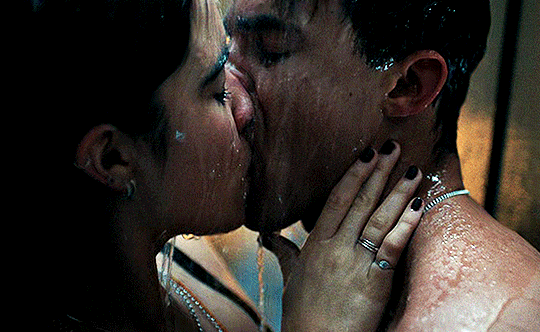


Do you think you're better off alone? My Fault: London (2025) Dir. Charlotte Fassler & Dani Girdwood
#my fault london#my fault: london#myfaultlondonedit#matthew broome#matt broome#asha banks#noah morgan#nick leister#noah x nick#culpa mia#culpa mía#british actors#black actors#prime video#romance movies#romance films#romantic drama#mercedes ron#wattpad#filmgifs#films#film#filmedit#movies#moviegifs#flawlesscelebs#gifset#my gifs#you can tell it was directed by women bless yall#the soundtrack slaps
1K notes
·
View notes
Note
Mad cat do you like The Orville? I saw your post talking about Twice Upon a Lifetime. Gordon has my whole entire heart and I wish they could have just let him be, but they had to protect the timeline. Everything they did they did for the sake of their future.
I do! In a lot of ways, it was baby's first Star Trek, for me. I saw episodes of Next Gen here and there when I was a kid, but The Orville is what inspired me to watch Next Gen (and Discovery) in full. Even to this day, I consider The Orville to be "real" Star Trek. Not saying it's better than official content (though I certainly enjoy it) but I would argue that it's more than earned it's place as an addition to that fictional universe.
Regarding Twice In a Lifetime,
I know that was the point of view the episode wanted to establish for Ed and Kelly, and I'm not even sure if they wanted us to see Gordon as being in the right or wrong. I can only tell you that when I watched it, I was absolutely on his side and frankly, rooting for Ed and Kelly after that episode was...challenging.
They claim they want to protect the timeline, but they have an extremely narrow definition of what that means, regarding a subject that they freely admit to not fully understanding. The fact is, Gordon could be right. Maybe the timeline where he stays on Earth is the "right" one. The Orville crew don't know. They can't be sure, one way or the other, so what makes the version of time they're fighting for more real, more legitimate, more "safe?" Whether or not Gordon should have done what he did, it's happened now. Ed claims that it's still in flux "until we act." But that doesn't make any sense. Everything they do is "acting." How does the timeline know when they "mean" it?
Oh and, they go back in time to rescue Gordon from 2015, despite already interacting with Gordon in 2025, and obtaining the fuel they need to make that journey from 2025. Would that not create gigantic paradox? I guess it doesn't, but again, how the hell could the Orville crew be sure that it wouldn't before they make that jump? Can we also talk about how they mine a finite resource from the Earth's crust that hasn't even been discovered yet, like that won't affect the timeline more than Gordon having kids.
There is no way to not leave a footprint when you're in the past. It is not possible. On paper, hiding out in the woods seems like it would change less, but it really doesn't. Every one of the animals Gordon killed for food might have played some role or been part of a domino effect that changed the future somehow. It's called The Butterfly Effect for a reason. Living a quiet, mundane life, to me, is just as acceptable and probably smarter than staying in the wilderness. Oh yeah, and when they find Gordon's bio, Kelly asks "Why is there a record of him at all?" My sister in Christ, why were you looking him up in the first place if you didn't expect to find something?
Ed and Kelly keep bringing up Union law to Gordon, even though the Union literally doesn't exist in the 21st century. How is he supposed to break laws that don't exist? The Union can try to legislate the past all it wants, but in actual practice it should have no right or jurisdiction. By The Union's it's own reasoning, the past is apparently written in stone. Ed and Kelly also mention how Gordon "took an oath" as if he hasn't made it very clear that he's resigning his post as a Union officer. And so long as we're talking about the law, would it not be a crime to erase Edward and his unborn sibling? Like, Gordon raises that point and Ed/Kelly don't acknowledge it.
Man, I could go on. I could talk about the hypocrisy of The Orville crew considering history says they're all supposed to be dead after the dark matter storm in Season 1. How they were far more open minded with Past Kelly in Season 2, agreeing to let her stay and not forcing a memory wipe on her when she was going home. Not to mention they were willing change history in The Road Not Taken. I could talk about how, in just the previous episode, they were willing to risk losing their greatest ally against the Kaylon just so Topa could transition. I'm not saying any of these decisions were wrong, but if that's the attitude we've been going with so far, how do Ed and Kelly justify such a sharp turn?
In general, I have a lot of issues with the laws of The Union/Federation. I also think The Prime Directive is a circular argument that basically humble-brags about it's own lack of empathy, but that's a debate for another time.
#The Orville#Star Trek#Twice in a Lifetime#Gordon Malloy#Ed Mercer#Kelly Grayson#Edward Malloy#The Federation#The Union#The Prime Directive
11 notes
·
View notes
Text

Just saw someone’s fan made design for tfp Prowl and it made me remember that we have canon design for him and that I love it very much haha
Upd: Just realised I committed a crime of forgetting Prowl’s doorwings lmao. Fixed~
#maccadam#transformers#transformers universe#transformers prime#tfp#wait can I call it tfp?#I found this design in the Covenant of Primus which is direct backstory for tfp so?#I think I can?#Prowl#tfp Prowl#or like#aligned continuity
2K notes
·
View notes
Text

Samus using her psychic powers in Metroid Prime 4
1K notes
·
View notes
Text





Metroid Prime 4: Beyond (2025)
#metroidedit#gamingedit#dailygaming#metroid#samus aran#flashing gif#solidedit#nintendo#sylux#samus#metroid prime#metroid prime 4#nintendo direct#gif
3K notes
·
View notes
Note
I’m sorry you got to show us what the hell you mean SG!Bee kept Shockwave’s corpse?!??????
Unlike human corpses cybertronian ones takes a long while to show any sign of decay or rust. You can keep it with you for a while.
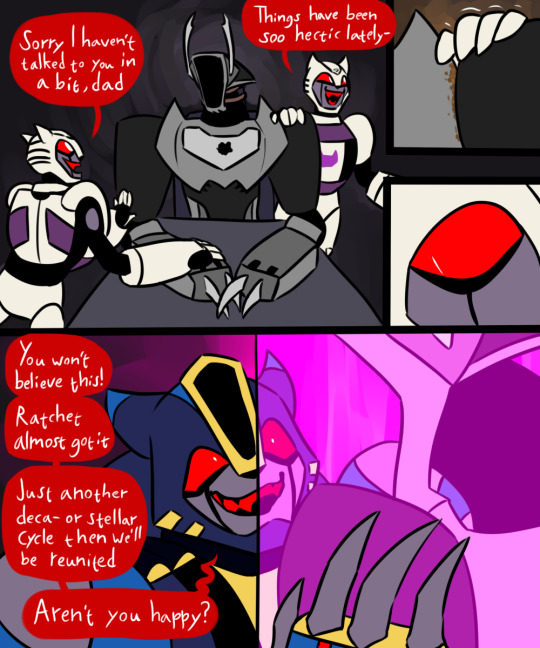
And even then you'll just have to keep it away from oxygen and then it'll be like nothing ever happened :]
Maybe if you can reverse this mistake then everything you've done will have been worth it.
#Goldbug is like if Victor Frankenstien was the son#Searching for a connection to others by playing god#my art#Crispy answers#shattered glass#tfa#evil shockdad au#bumblebee#goldbug#bumble prime#shockwave#He talks to shockwave like tfOne!Bumblebee talks to his scrap friends but like take it in the horror direction#character death#evil bumbleson au
602 notes
·
View notes